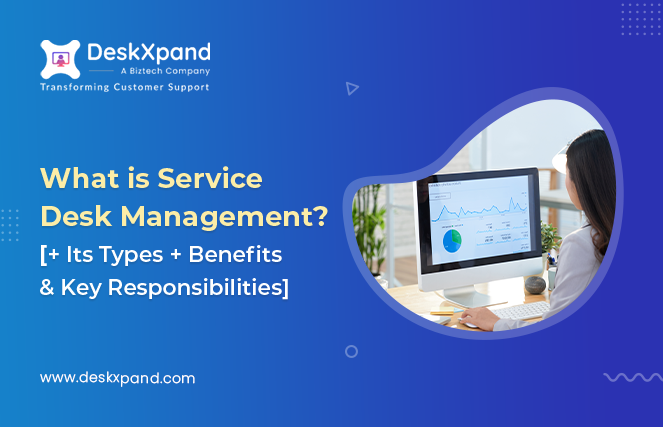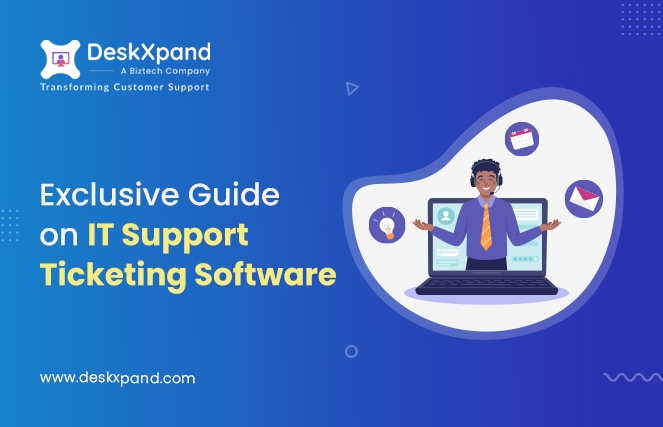In 2023, brands aim to be customer-oriented but struggle to know what it actually means, how it works and how they can truly make a difference. As customer experience is dynamic, it keeps evolving continuously with the changes in technology and customer demands. In such a scenario, putting customers at the center of the business is the least that a company can do in today’s world.
As technology and customer demands change, customer experience also evolves continually. You cannot expect to flourish forever by making your support services customer-oriented just once. Brands that rest on their laurels and fail to understand what’s needed next will only be able to compete simply based on their product features and prices and, eventually, they’ll become irrelevant. You have to keep evaluating your business and always focus on customer-oriented services.
Delivering value-based customer-oriented services is an eternal quest and challenge for any industry. The question is, how will you get there. We’ve all heard adages like:
“We are a customer-first organization.”
“Customers are the most important part of our business.”
“We put our customers first.”
“Exceptional customer service is what differentiates us from our competitors.”
Unfortunately, like a lot of other adages, these statements often end up being hollow rhetorics. No matter how many times a brand emphasizes them, most brands fail to enact the culture and make organizational changes needed to turn these adages into a practiced reality.
So how does a brand make itself into a customer-first organization?
In this article, we’re going to discuss exactly this. We’ll talk about how companies can inculcate a culture of customer-oriented services and make customer support a priority across the organization. Let’s get started.
Table of Content
- Customer-Oriented Services: Where Did it Come From?
- What Skills Do You Need For Customer-Oriented Services
- Why is it Important to be Customer-Oriented
- 5 Key Components of a Customer-Oriented Strategy
- Ways to Implement Customer-Oriented Services from Within The Organization
- Invest in Tech That Enables Customer-Oriented Services
- Build a Customer-Oriented Culture with DeskXpand
Customer-Oriented Services: Where Did it Come From?
Customer-oriented services came from the business approach of customer orientation. Customer orientation puts customers’ needs above everything else. Customer-oriented brands understand that their business won’t thrive unless they keep improving customer focus.
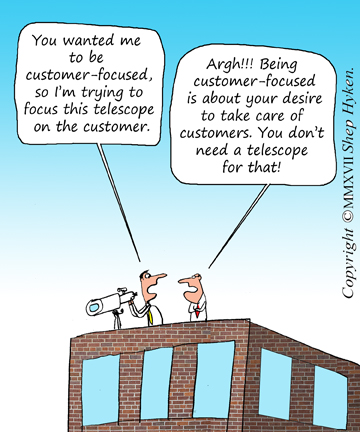
What does customer orientation mean?
Customer-oriented services align your business goals with your customer’s goals and will help you build better relationships with your customers. Building customer-oriented services mean recognizing that:
“Customers are the business!”
We all are aware of this famous quote by Zappos founder, Tony Hsieh:

Customer service shouldn’t be just a department; it should be the entire company.

Get it?
Let’s try to understand this by looking at an example of Netflix. Netflix is known for being customer-oriented. It solves their needs and creates raving fans with a mix of quantitative and qualitative methods.
Over the years, they’ve used a customer-oriented approach to:
- Reduce the DVD shipping times by opening more distribution hubs
- Use more customer-friendly language in their interface
- Recommend relevant media to customers based on their previous choices
- Improve the quality of the movie and show suggestions made to customers
Besides this, their customer support interactions are beyond quick and amazing. Here’s a fun, popular example from their customer support live chat.
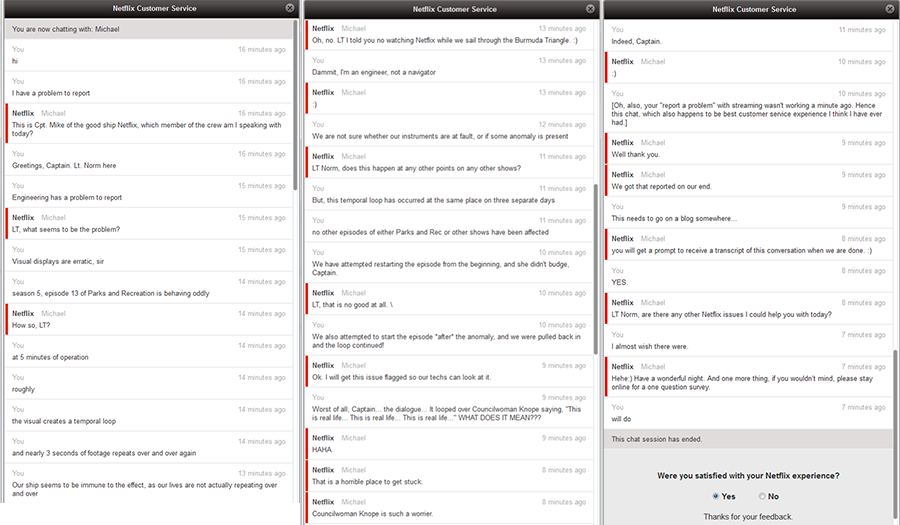
What Skills Do You Need For Customer-Oriented Services
It is not only about customers. It requires your entire support team (including manager, senior employees, and support executives) to master the key customer service skills. You need to make sure that your team is customer-oriented as a whole and as individuals. Here are some must-have skills:
- Empathy
- Ability to understand customer data
- Ability to make decisions based on customer data
- Agility to adapt to customer needs
- Effective communication
- Active listening
- Problem-solving skills
Why is it Important to be Customer-Oriented
Before we move forward to the strategies, let’s quickly look at the importance of becoming customer-oriented. Here’s how it saves (and makes) your business money. It helps you maintain your bottom line that is:
I. It is easier to keep existing customers than get new ones
On average, acquiring customers costs more than retaining an existing one. No matter how much you market your website, most customers only visit a website one time. If they like it, they’ll try to explore more about you. Or else they’ll plainly exit without even looking at your offerings.
Increasing customer retention rates just by 5% can boost your brand’s profits by 25% to 95%. The point is, you can grow your business more by focussing on your existing customer than just getting better at customer acquisition. Increasing customer retention rates just by 5% can boost your brand’s profits by 25% to 95%. And one of the best ways to do so is to provide fast, exceptional customer support.
II. Customer-oriented services drive loyalty
Most customers cite this factor as a major factor that makes them loyal to any brand. Your overall waiting times also affect customer loyalty a lot. A study states that the most important aspect of a good customer service experience was being able to resolve an issue quickly. And long wait times while interacting with agents ranked as the most frustrating aspect of a bad customer service experience. Customers want solutions, and they want it right then and there.
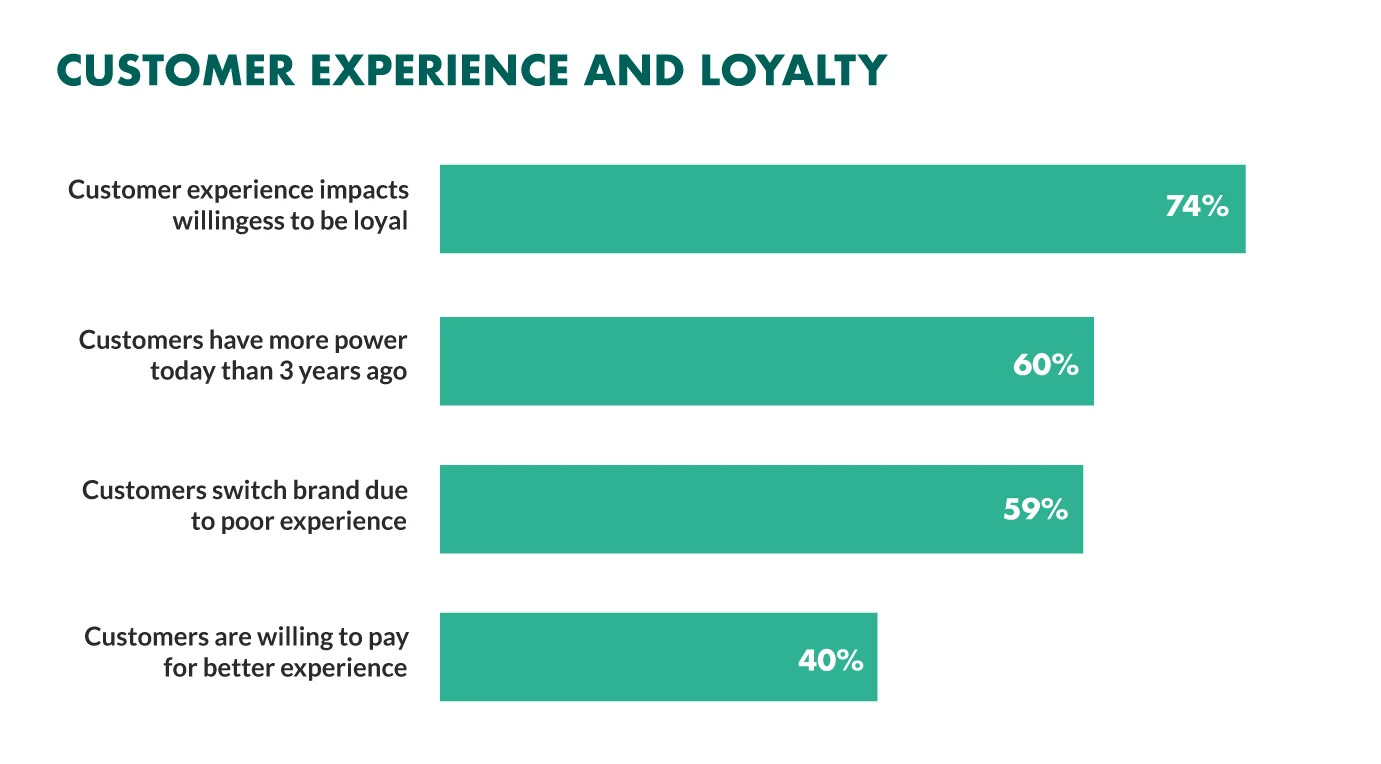
Customers want solutions, and they want them right then and there. A customer orientation mindset alone will not do anything for your business unless you implement it in your strategies. Let’s look at four popular ways to go about this.
4 Key Components of a Customer-Oriented Strategy
These five components will help you define the perfect customer-oriented services regardless of your business niche.
1. Identify Customer Needs
A customer-oriented approach starts with knowing what the customers want/need. Find that out! Find out what customers think of your service. You’ll know what you need to improve and what are the things that make your customers happy. CSAT surveys can help you achieve this. Start with asking the simplest of questions like:
- Was their interaction with your brand good or bad?
- What would they like to change about your services?
- Were their questions answered satisfactorily?
You can also give them an open-ended comment box where they can provide additional feedback about their experience. Many companies measure their progress using the Customer Effort Score (CES.) This asks the customers to rate how easy their interaction was on the scale of “very easy” to “very difficult.” Opt for the method that works for you; be it CES or CSAT, the important part is that you’re measuring their experiences.
2. Set Goals Based on Feedback
When you look at your customer feedback, you’ll find areas where you’re not doing as great as you thought you were doing. Once you’ve done that, it is time to set new goals that address those areas.
Let’s say a support executive has a lower-than-average CSAT score. In such a scenario, you must think about monitoring their work, helping them to do better, and providing extra training to help them reach a higher benchmark. Suppose your CSAT data shows that your customers rate live chat interactions higher than email support. You should work on your email responses more and cutting down the response time.
3. Monitor Social Media Feedbacks
Surveys are not the only way to know what customers think about you. Monitoring social media can reveal a lot of hidden things that they won’t say to your face.
On your social media handles, look for:
- Common complaints
- Frequently asked questions
- Unempathetic customer support from your end
- Other support issues that should be addressed
There are chances that you’ll see some common issues that come up over and over again. Once you know the underlying problems, you can work towards changing them.
Train your agents to respond as quickly as possible on social media. Fast responses on social media can help strengthen and repair customer relationships. While replying, make sure that:
- You’ve identified the issue correctly
- Offer links to additional information or knowledge base
- Always be the one who ends the conversation. Close the loop by thanking or apologizing to your customers for the inconvenience caused
4. Encourage Compassion
It is tempting to focus on improving call times and survey scores. Many support teams lose the human touch to the support in order to automate and fasten their processes. Make sure this doesn’t happen to your brand. Remind your customer service agents to:
- Practice empathy when dealing with customers
- Address their frustrations with patience and understanding
Ways to Implement Customer-Oriented Services from Within The Organization
I hope these four components will help you implement customer-oriented strategies in your organization. Make it a central part of your mission and work to connect your entire organization through customer-centric values.
It’s important that customer orientation is not just inculcated to certain teams. For the best possible results, you need your entire company to get customer-oriented. Here are some ways to implement customer-oriented strategies:
- Share customer data and stories across the organization. Help your executives see your company through customers’ eyes.
- Take it personally. Make customer experience personal for your support executives.
- Encourage in-team collaboration between executives. Sometimes it will bring out results that you didn’t expect in the first place.
- Involve your team members while deciding strategies. After all, they’re the ones who spend the most time with your customers. They can help you make the right decisions when it comes to strategizing.
So, now you have the strategies the key components and wait to implement customer-oriented services. What next? There’s still one thing remaining. Something that brings all these parameters together. That is your customer support helpdesk.
Invest in Tech That Enables Customer-Oriented Services
In order to gain a competitive advantage and edge to build customer-oriented services, your tech solutions play a huge role! Robust technology will ensure that you don’t even lose a single customer. Besides, customer-oriented services have expanded their demands lately. It is no more just about resolving customer queries.
As a brand, you must be aware of the usual trends and roadblocks in the customer support journey. For this, you need a tool that helps you analyze parameters from time to time. In order to reduce your average query counts, you can implement knowledge right from your support tool. Then comes an omnichannel approach to manage all communication channels from a single interface. And you need all these features under one tool/software along with an integrated data management interface. Otherwise, your agents will be overwhelmed by switching between multiple tools simultaneously.
Hence, adopting a technological tool that lets you do all this from a single unified interface is utterly necessary. Plus, you will need to access customer data repeatedly to perform various tasks. Worry not, DeskXpand is here for you!
Build a Customer-Oriented Culture with DeskXpand
DeskXpand helpdesk enables businesses to:
- Provide quick resolutions
- Simplify business services
- Reduce glitches
- And eventually, cultivate a customer-oriented culture
DeskXpand is a fully automated, omnichannel service that caters to all types of businesses (from small to large.) We are an ISO27001 certified development company with 15+ years of development experience. Work with us to bring your customer goals to reality. Find out more about DeskXpand.

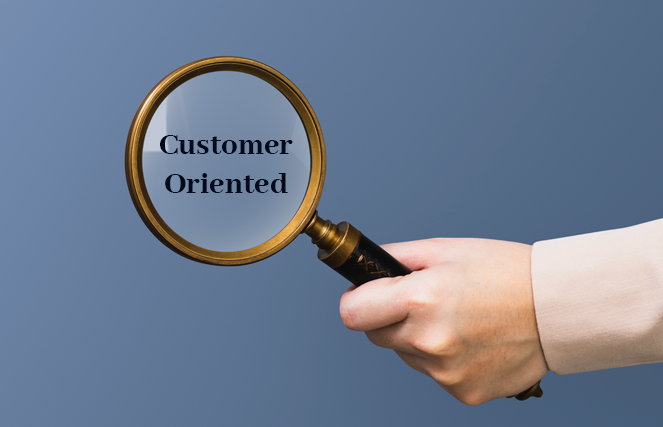



![7 Best Email Support Software of 2023 [+ Advantages & Features] 7 Best Email Support Software of 2023 [+ Advantages & Features]](https://www.deskxpand.com/wp-content/uploads/2023/11/Blog_7-Best-Email-Support-Software-of-2023.png)
